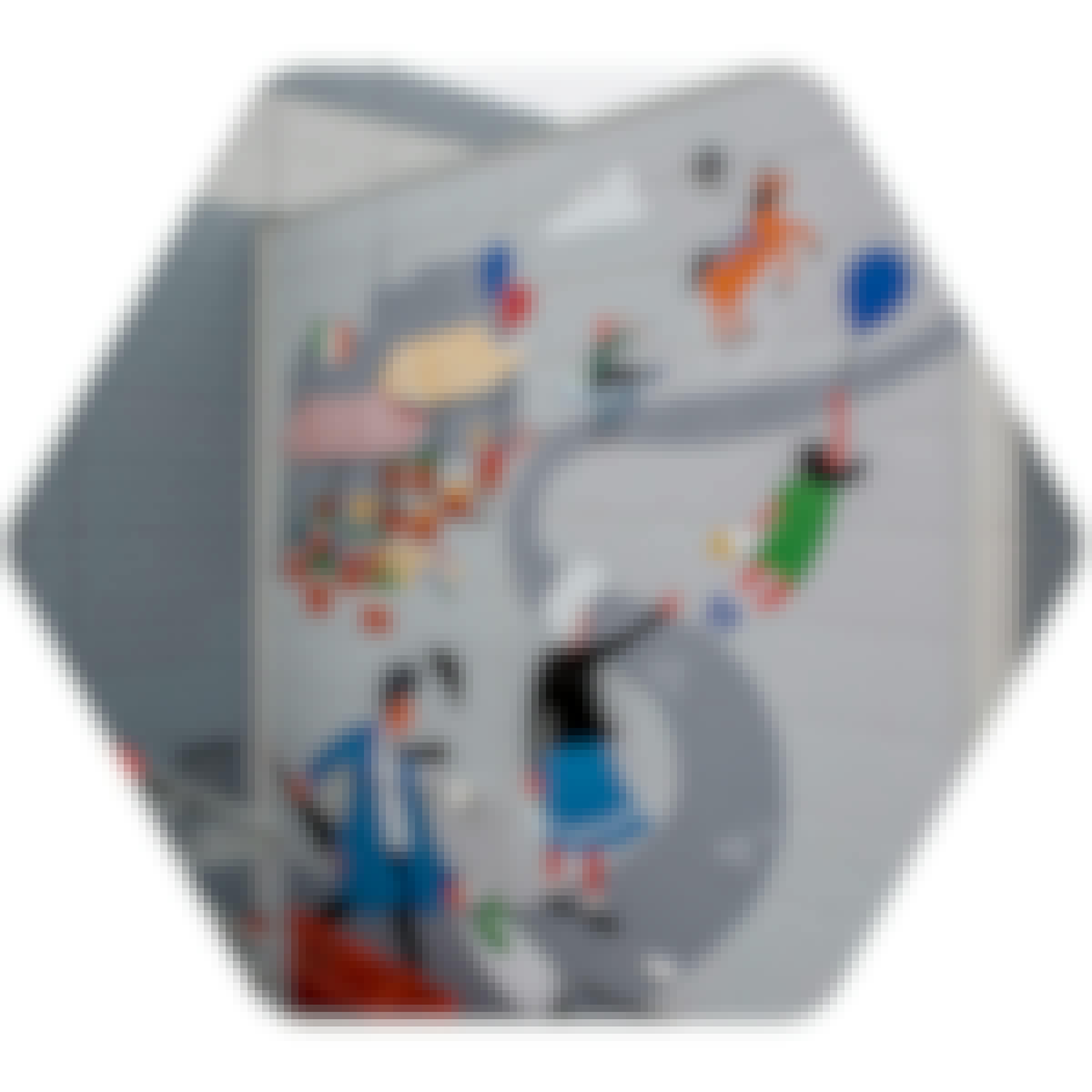- Browse
- Net
NET Courses
NET courses can help you learn web development, network programming, and cloud computing. You can build skills in creating APIs, managing databases, and implementing security protocols. Many courses introduce tools like Visual Studio, .NET Framework, and Azure, demonstrating how these technologies support application development and deployment.
Popular NET Courses and Certifications

Skills you'll gain: Network Troubleshooting, Network Architecture, Network Planning And Design, Cloud Computing Architecture, Virtual Networking, Network Infrastructure, Network Monitoring, General Networking, Google Cloud Platform, Network Security, Network Analysis, Virtual Private Networks (VPN), Firewall, Scalability, Load Balancing
Intermediate · Course · 1 - 4 Weeks
 Status: NewNewStatus: Free TrialFree Trial
Status: NewNewStatus: Free TrialFree TrialSkills you'll gain: Network Architecture, Routing Protocols
Beginner · Course · 1 - 3 Months
 Status: Free TrialFree Trial
Status: Free TrialFree TrialSkills you'll gain: Network Troubleshooting, OSI Models, Network Model, TCP/IP, Networking Hardware, Local Area Networks, Network Protocols, General Networking, Network Architecture, Network Infrastructure, Network Switches, Test Equipment, Test Tools
4.9·Rating, 4.9 out of 5 stars37 reviewsBeginner · Course · 1 - 3 Months
 Status: Free TrialFree TrialU
Status: Free TrialFree TrialUUniversity of Colorado Boulder
Skills you'll gain: Cloud Services, Network Architecture, Cloud Computing, Cloud Infrastructure, Cloud Computing Architecture, Virtual Networking, Software-Defined Networking, Wide Area Networks, Terraform, Network Infrastructure, Google Cloud Platform, Load Balancing, Hybrid Cloud Computing, Virtual Private Networks (VPN), Infrastructure as Code (IaC), Virtual Machines
Build toward a degree
4.7·Rating, 4.7 out of 5 stars18 reviewsIntermediate · Course · 1 - 3 Months
 G
GGoogle Cloud
Skills you'll gain: Network Performance Management, Virtual Networking, General Networking, Google Cloud Platform, Network Administration, Computer Networking, Network Architecture, Network Security, Network Routing, Firewall, System Configuration, Infrastructure Security, Security Controls, Security Software
4.2·Rating, 4.2 out of 5 stars17 reviewsBeginner · Project · Less Than 2 Hours

Skills you'll gain: Virtual Networking, Network Monitoring, Google Cloud Platform, General Networking, Network Infrastructure, Cloud Infrastructure, Network Troubleshooting, Network Performance Management, System Monitoring, Public Cloud, Virtual Machines, Service Level
Intermediate · Course · 1 - 3 Months
 Status: PreviewPreviewG
Status: PreviewPreviewGGoogle Cloud
Skills you'll gain: Network Monitoring, Network Troubleshooting, Virtual Networking, Google Cloud Platform, General Networking, Network Infrastructure, Network Performance Management, Network Planning And Design, Cloud Services, Virtual Machines, Service Level
Intermediate · Course · 1 - 3 Months
 Status: NewNewStatus: Free TrialFree Trial
Status: NewNewStatus: Free TrialFree TrialSkills you'll gain: Linux Commands, Network Administration, Network Analysis
Intermediate · Course · 1 - 4 Weeks

Skills you'll gain: Load Balancing, Virtual Networking, Google Cloud Platform, Network Performance Management, Hybrid Cloud Computing, Cloud Management, Scalability, TCP/IP, Cloud Security, Distributed Denial-Of-Service (DDoS) Attacks
Intermediate · Course · 1 - 4 Weeks
 Status: Free TrialFree TrialG
Status: Free TrialFree TrialGGoogle Cloud
Skills you'll gain: Prompt Engineering, Google Cloud Platform, Cloud Infrastructure, Kubernetes, Load Balancing, Infrastructure As A Service (IaaS), Generative AI, Cloud Services, Virtual Networking, Containerization, Cloud Storage, Virtual Machines, Network Routing, Cloud Computing, TCP/IP, Network Architecture, General Networking, Identity and Access Management, Network Infrastructure, Virtual Private Networks (VPN)
4.5·Rating, 4.5 out of 5 stars706 reviewsIntermediate · Specialization · 3 - 6 Months
 Status: FreeFreeA
Status: FreeFreeAAmazon Web Services
Skills you'll gain: Load Balancing, Amazon Web Services, Network Performance Management, Network Architecture, Scalability, TCP/IP, Network Protocols, Servers
Beginner · Course · 1 - 4 Weeks
 Status: Free TrialFree Trial
Status: Free TrialFree TrialSkills you'll gain: Network Routing, TCP/IP, Virtual Networking, Google Cloud Platform, Network Infrastructure, Virtual Private Networks (VPN), Network Planning And Design, Cloud Computing, Network Monitoring, Network Security, Cloud Security
Intermediate · Course · 1 - 4 Weeks
In summary, here are 10 of our most popular net courses
- Networking in Google Cloud: Network Architecture - 日本語版: Google Cloud
- Networking Basics and TCP/IP Fundamentals: Packt
- Networking Fundamentals and Physical Networks: Packt
- Network Principles in Practice: Cloud Networking: University of Colorado Boulder
- Networking 101: Google Cloud
- Networking in Google Cloud: Fundamentals - Português Brasileiro: Google Cloud
- Networking in Google Cloud: Fundamentals - Français: Google Cloud
- Linux Networking - Basics and Beyond: Unit 3: Pearson
- Networking in Google Cloud: Load Balancing - Français: Google Cloud
- Networking in Google Cloud 日本語版: Google Cloud










